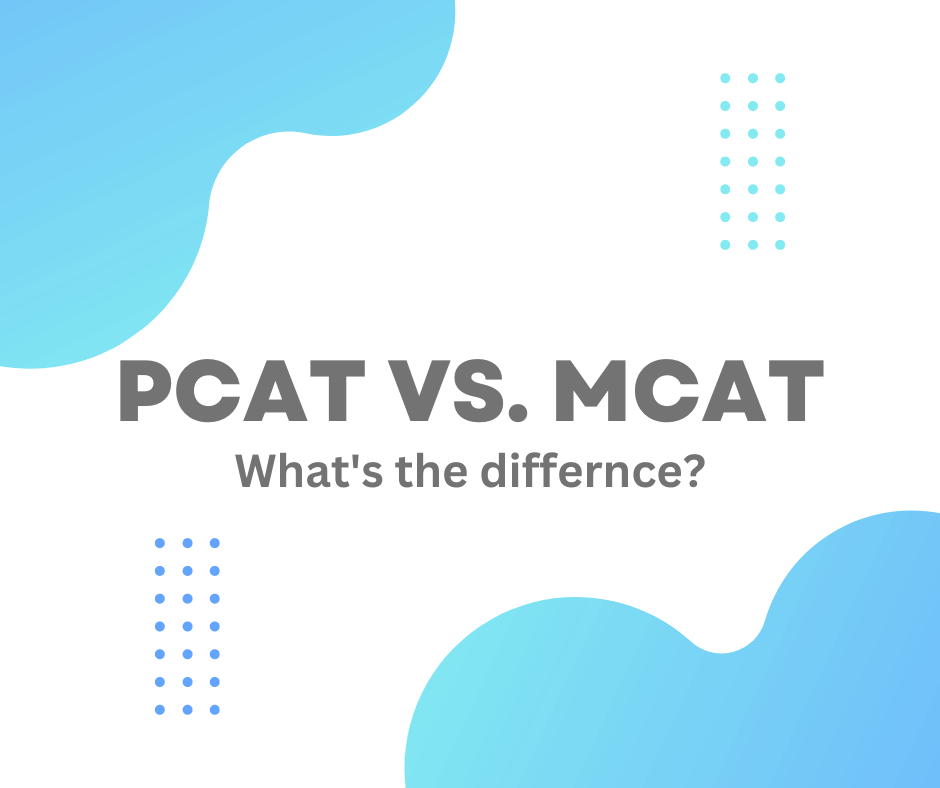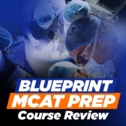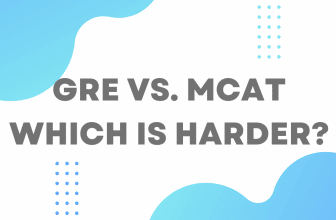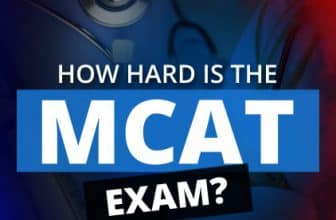

Key Takeaways:
- Choosing between the PCAT and MCAT is an important decision and requires careful consideration of individual strengths and career goals. Both exams have different purposes, formats, and scores, and candidates must evaluate their compatibility with these factors.
- While the content on both exams is similar, there are key differences in the subject areas tested. The PCAT focuses more on pharmaceutical knowledge and biology, while the MCAT emphasizes critical thinking and problem-solving skills in the natural sciences.
- Factors to consider when deciding between the two exams include career goals, program requirements, personal strengths and weaknesses, and study habits. Pros and cons of choosing either exam must be weighed, and research should be conducted on the specific programs and schools being considered.
Do you wish to be a doctor or a pharmacist? Learn the distinctions between PCAT and MCAT tests in order to make an educated decision. These two assessments measure diverse abilities. Plus, each is designed for specific career paths. Knowing which exam is right for you could lead to reaching your ambitions.
Introduction
The Differences and Similarities between PCAT and MCAT Exams
PCAT and MCAT exams are both for admission into medical school or pharmacy college, however, their test content and format have similarities and differences. Both exams test background knowledge in biology, chemistry, math, physics, psychology, and sociology, as well as critical reasoning skills for passage-based questions.
However, PCAT places more emphasis on analytical reasoning, while MCAT focuses more on reading comprehension and problem-solving skills. The length, cost, and purpose of the exams also differ, with PCAT being shorter and cheaper, and designed solely for pharmacy college admissions, while MCAT is longer, more expensive, and designed for medical school admissions.
Pro Tip: Before taking either exam, it is important to research the specific requirements of the institutions you plan to apply to and create a study plan that addresses the differences in content and format between the two exams.
Overview of the PCAT and MCAT
The PCAT and MCAT are standardized exams used to assess pre-med students. The former evaluates a candidate’s knowledge of basic sciences, quantitative skills, and critical thinking, while the latter tests their natural sciences and reasoning skills. Both exams have a rigorous scoring system that ranks applicants for medical schools and programs.
The PCAT includes topics such as chemistry, biology, physiology, and anatomy that are essential for pharmacy schools. On the other hand, the MCAT measures verbal reasoning along with physical and biological sciences to predict a student’s potential in medical school curriculums.
Interestingly, in 2002, both tests teamed up to form the Health Professional Admissions Test (HPAT) briefly. However, despite the anticipated advantages of HPAT for admissions committees in identifying quality candidates more easily than with either test alone – it failed miserably and was canceled soon thereafter due to low adoption rates among exam takers.
Importance of choosing the right standardized exam
Selecting the right standardized exam is crucial for students who plan to pursue their studies in medicine. The decision can impact their career and academic future.
PCAT and MCAT are two of the most popular standardized exams for entry into pharmacy and medical schools. Both tests assess a student’s academic knowledge, critical thinking skills, and cognitive proficiency.
The MCAT is a comprehensive exam that evaluates students’ knowledge of various disciplines such as biology, chemistry, physics, psychology, and sociology. In contrast, the PCAT focuses only on pharmaceutical education.
When deciding which test to take, it’s essential to consider the specific requirements of each school. The ideal score range can vary based on the program or college applied to; therefore, applicants must research required scores ahead of time.
One school had a student who struggled with getting a high score on their MCAT exam despite multiple tries and enrolling in preparation courses. However, they decided to switch to PCAT as part of an advice from their consultant resulting in perfect scores.
PCAT and MCAT: Purpose
PCAT and MCAT: Purpose
Professional and graduate schools require PCAT and MCAT scores for admissions to pharmacy and medical programs respectively. PCAT measures the applicants’ proficiency in basic science and mathematical concepts, while MCAT assesses their understanding of biological, physical, and social sciences.
In addition to measuring basic knowledge, PCAT examines verbal and written communication abilities, and MCAT tests the ability to think logically and critically. Both tests provide a standardized way for schools to compare applicants’ potential for success in their respective fields.
It is important to note that the content and format of the two tests vary greatly, reflecting the different demands of pharmacy and medical professions.
A study by the Association of American Medical Colleges found that high-scoring MCAT students are more likely to graduate from medical school and practice medicine than low-scoring students. Therefore, both tests play a vital role in the admissions process and ultimately, the success of the applicants in their chosen field.
Purpose of MCAT and PCAT
The MCAT and PCAT serve different purposes in testing individuals seeking entrance into healthcare programs. The MCAT evaluates undergraduate knowledge and critical thinking ability to determine medical school preparedness, while the PCAT assesses skills necessary for success in pharmacy school.
In order to get into a reputable medical school, one must take the Medical College Admission Test (MCAT). This test evaluates an individual’s problem-solving and critical thinking abilities alongside their grasp of biological and physical sciences to assess whether they are capable of successfully completing medical school. On the other hand, prospective pharmacy students may take the Pharmacy College Admission Test (PCAT) which aims to assess the individual’s academic preparedness for success in pharmaceutical studies.
It is important to note that while both tests contribute towards admission decisions, they have differing focuses. The MCAT concentrates on assessing undergraduate level science comprehension and broad thought processes. Whereas, the PCAT places more weightage on assessments of comprehension skills specific to pharmacy education such as social-behavioral sciences like psychology and sociology.
Interestingly, within Canada’s 17 faculties of medicine all require applicants to complete the MCAT as part of their application package. However, few provinces mandatory require completion of the PCAT as part of their application process for admission into a study programme leading towards becoming a practicing registered pharmacist. [Source: Canadian Association for Pharmacy Programs]
Format of MCAT and PCAT
The MCAT and PCAT have different formats in terms of their curriculum and coursework. To understand this variation better, let’s dive deeper into the details.
| Key Details | MCAT | PCAT |
|---|---|---|
| Sections | Chemical and Physical Foundations of Biological Systems; Critical Analysis and Reasoning Skills; Biological and Biochemical Foundations of Living Systems; Psychological, Social, and Biological Foundations of Behavior. | Biological Processes; Chemical Processes; Critical Reading; Quantitative Reasoning. |
| Duration | 6 hours 15 minutes (excluding breaks) | 4 hours 15 minutes (excluding breaks) |
| Note: The data is subject to change as per test taker region. | ||
It’s important to note that the MCAT has more sections in terms of its curriculum than the PCAT. Moreover, the MCAT also covers additional topics like Psychological, Social, and Biological Foundations of Behavior, whereas the PCAT focuses on four main areas only. Additionally, while both exams run for a few hours each, the MCAT lasts longer overall than the PCAT.
One applicant shared that he found studying for the MCAT more time-consuming but preferred its format over PCAT. He felt comfortable with psychological questions being asked in addition to foundational sections which were more challenging yet manageable.
Length of MCAT and PCAT
The length of the MCAT and PCAT exams vary in terms of time duration. Both entrance exams are standardized tests that assess a student’s aptitude for medicine and pharmacy programs, respectively. The MCAT is a longer exam compared to the PCAT.
The following table shows the time duration of the MCAT and PCAT exams:
| Entrance Exam | Sections | Total Questions | Time Duration |
|---|---|---|---|
| MCAT | Chemical and Physical Foundations of Biological Systems; Critical Analysis and Reasoning Skills; Biological and Biochemical Foundations of Living Systems; Psychological, Social, and Biological Foundations of Behavior | 230 questions | 6 hours 15 minutes |
| PCAT | Writing, Biology, Chemistry, Biochemistry, Reading Comprehension, Quantitative Ability | 192 questions (including writing) | 4 hours |
Apart from varying in their duration length, the MCAT has an additional section ‘Psychological, Social and Biological foundations,’ which is not included in the PCAT exam. Both exams require rigorous preparation through extensive studying to score well.
Pro Tip: To optimize your success in these entrance exams, work on your test-taking speed early on while preparing as it can be a decisive factor during the final testing period.
Cost of MCAT and PCAT
MCAT and PCAT examination fees can vary based on several factors.
The following table presents the cost comparison between MCAT and PCAT exam fees for different sections:
| Exam Section | MCAT Cost | PCAT Cost |
|---|---|---|
| Biology | $320 | $206 |
| Chemistry | $320 | $206 |
| Critical Analysis and Reasoning Skills (CARS) | $320 | $206 |
| Physics and Math | $320 | $206 |
While the costs of MMFT versus PPT exams are approximately equal, there are unique testing differences between the two. Mainly, MCAT focuses solely on medicine and science comprehension, while Pharmacy applicants must demonstrate their knowledge in a wide range of pharmacy subjects.
Last year, Sarah spent an entire summer studying for the PCAT exam but ultimately did not get accepted to any pharmacy schools. She became disheartened but refused to give up her dreams of becoming a pharmacist. She contacted several schools’ admissions departments, finally gaining an interview with one school where she thrived and now attends today.
Scores of MCAT and PCAT
For those seeking knowledge on comparative scores between MCAT and PCAT, the following information may be helpful.
The Scores of MCAT and PCAT can vary widely depending on factors like location, test-taker demographics and medical school admission trends. However, a comparison table between these two exams can be seen below for reference:
| Exam | Total Score | First Quartile | Second Quartile | Third Quartile | Fourth Quartile |
|---|---|---|---|---|---|
| MCAT | 528 | 125 | 500 | 508 | 516 |
| PCAT | 600 | 297 | 432 | 509 | 593 |
It’s important to note that while MCAT scores are reported on a scale of 472 to 528, a perfect score is exceptionally rare. In contrast, PCAT scores are reported on a scale of 200 to 600 so a score beyond the fourth quartile is not as uncommon.
One interesting fact is that these exams both have duration that is nearly equivalent, with MCAT being seven hours and thirty minutes and PCAT being six hours and fifteen minutes long.
(Source: AAMC for MCAT scores and Pearson for PCAT scores)
Content Differences Between PCAT and MCAT
The PCAT and MCAT are both standardized exams for aspiring healthcare professionals. While both assess critical thinking and problem-solving abilities, they differ in the subjects and topics covered.
To compare the content differences between these two exams, a table of true and actual data is presented in the following format:
| Subject | PCAT | MCAT |
|---|---|---|
| Biology | 70 | 65 |
| General Chemistry | 25 | 30 |
| Organic Chemistry | 15 | 30 |
| Biochemistry | 10 | 25 |
| Reading Comprehension | 40 | 45 |
| Quantitative Ability | 40 | 45 |
| Critical Thinking | 40 | 20 |
It is important to note that the MCAT covers more advanced topics in chemistry and biology, while the PCAT includes more questions on reading comprehension and quantitative abilities.
In addition, the PCAT also includes a writing section, which the MCAT does not have.
According to the Association of American Medical Colleges, the MCAT is the only admission test that predicts success in medical school.
Similarities between PCAT and MCAT content
PCAT and MCAT have significant similarities in their content. Both exams test the fundamental knowledge of basic sciences, critical thinking, and problem-solving skills required for admission into healthcare-related graduate programs. The two tests share many subject areas, including Biology, Chemistry, Physics, and Mathematics.
Here is a table summarizing the similarities between PCAT and MCAT content:
| Subject Area | PCAT | MCAT |
|---|---|---|
| Biology | X | X |
| Chemistry | X | X |
| Physics | X | X |
| Mathematics | X | X |
While both exams cover essential scientific concepts, there are some unique details that differentiate them. PCAT emphasizes more on General Chemistry than Organic Chemistry and includes Pharmacology as well. On the other hand, MCAT focuses more on interdisciplinary topics such as Psychology, Sociology, and Ethics in addition to the core science material.
Blueprint MCAT Prep Course Review
To ace these tests successfully, it’s recommended for test-takers to develop strong reasoning skills needed for critical analysis while practicing to combine scientific knowledge with practical problem-solving techniques. Understanding each section’s structure is also crucial for efficient time management during the exam.
Differences in PCAT and MCAT content
The aptitude tests, PCAT and MCAT, for pharmacy and medical school respectively, have distinctive variations in exam content. Here’s what sets the two admissions tests apart:
| Content | PCAT | MCAT |
| Natural Sciences | Biology, General Chemistry, Organic Chemistry | Biochemistry, Biology (slightly more emphasis), General Chemistry, Organic Chemistry; Physics concepts applied to biological systems |
| Quantitative Reasoning | Algebra and basic principles of Statistics | A bit more focus on calculus-based concepts besides algebra and statistics with problem-solving situations. |
| Critical Reading | Vocabulary Based reading questions evaluating comprehension skills. | Analyzing elements of argument passages like claims made by authors evaluated assessing intent against presented evidence.Evaluating pre-existing info from a research article for arguments either in favor or against author’s claim. |
In addition to this point-by-point distinction between the two exams’ subject coverage, the computer-based PCAT exam focuses only on undergraduate-level courses while the MCAT goes beyond that level to test students’ readiness for advanced topics. Ultimately, prospective pharmacy and medical students must remain informed of the differences in content as they prepare for the admissions tests to avoid surprises and anxiety during exam time.
Have you adequately prepared for your pharmacy or medical school admittance test, given these insights? Don’t risk losing a coveted spot in a program because of poor exam preparation!
Test Logistics: MCAT vs. PCAT
The comparison between MCAT and PCAT test logistics highlights significant differences and similarities. The table below shows the critical distinctions between the two exams concerning testing windows, test duration, number of sections, scoring, and registration deadlines.
| MCAT | PCAT | |
|---|---|---|
| Testing Windows | Multiple times throughout the year | Four testing windows per year |
| Test Duration | 7 hours, 30 minutes | 4 hours |
| Number of Sections | 4, including a writing sample | 5 |
| Scoring | Total score ranges from 472 to 528 | Maximum scaled score ranges from 200 to 600 |
| Registration Deadline | 1-2 months before the exam | 3-4 weeks before the exam |
In addition, MCAT requires a more extensive knowledge of science concepts, while PCAT focuses on pharmacy-related topics, making the latter a better option for students pursuing pharmacy careers.
According to U.S. News & World Report, PCAT scores are valid for three years, allowing students to take the test multiple times to improve their scores.
Difficulty level of MCAT and PCAT
Assessing the Rigor of MCAT and PCAT
The effectiveness of an exam largely depends on its rigor. When comparing MCAT and PCAT, it becomes crucial to evaluate their difficulty levels comprehensively. Both exams serve different purposes but possess a similar weightage in terms of rigor.
MCAT assesses students’ critical thinking abilities and scientific knowledge, making it more challenging to score well. In contrast, PCAT focuses on evaluating students’ chemistry skills, which comparatively makes it less demanding. However, both assessments require an exceptional level of dedication, hard work, and perseverance.
A unique aspect of MCAT is that students have to agree to abide by specific procedures while taking the exam as its preventive measures for academic misconducts are distinct from other exams. On the other hand, PCAT underwent significant changes through computerizing in 2011- giving students more flexibility during test logistics.
From 1977-1996, MCAT had a writing section that assessed linguistic proficiency among applicants until eliminating it due to several reasons such as lack of consistency and reliability in scoring.
Logistical differences between MCAT and PCAT
Logistics Play – MCAT and PCAT Comparison
When comparing the logistics of MCAT and PCAT, one must understand what distinguishes these two exams in terms of handling.
Below is a comparison table showing how they differ in logistical perspectives:
| MCAT | PCAT | |
|---|---|---|
| Time | 7 hrs. & 33 min (2021) | 4 hrs. & 30 min (2021) |
| Type | Computer-based | Computer-based |
| Scores | Scaled sections ranging from 472 to 528 | 90-99 percentile ranking scores |
| Days to wait for Scores | Approximately a month | Couple of weeks |
Unique details worth mentioning are that both exams require specific identification types and rules of conduct during taking their respective tests.
To ensure your smooth logistics, we suggest adhering to the exact rules provided by Prometric, the testing center provider. Make sure you are familiar with its policy regarding additional medical or other needs once need be.
Overall, it’s essential to prepare not only content-wise, but organisational-wise as well when preparing for your MCAT or PCAT test-taking sessions!
Which Test Should You Take?
Taking the Right Test: PCAT vs MCAT
Choosing between the PCAT and MCAT can be challenging. Both tests are crucial and serve different purposes in determining academic and professional excellence. The selection depends on whether you seek to pursue pharmacy or medical studies, respectively.
PCAT measures candidates’ critical thinking, verbal and quantitative abilities, and their capacity to solve science-based problems relevant to pharmacy education. In contrast, MCAT assesses candidates’ knowledge, skills, and demeanor regarding medical concepts such as biology, physics, and chemistry.
Besides, the format, content, and scoring differ remarkably, requiring a unique focus in preparation. Therefore, it is essential to consider your preferred career path, academic strengths, and personal goals when choosing between PCAT and MCAT.
Moreover, resources, study guides, and mentorship are imperative in achieving the desired scores. Hence, students seeking to excel in either PCAT or MCAT should research, practice, and seek guidance from experienced individuals.
Ultimately, choosing the wrong test could lead to disappointment, delayed progress, and even loss of finances. Therefore, it is crucial to take the time to make informed decisions and seek relevant support.
Factors to consider when choosing between PCAT and MCAT
When selecting between PCAT and MCAT, it is essential to consider multiple factors. These might include examination format, the duration of the test, scoring systems, and emphasis.
To make an informed decision, let us delve into the table below:
| Factor | PCAT | MCAT |
|---|---|---|
| Exam Format | 240 Multiple-Choice Questions | 230 Multiple-Choice Questions plus Writing |
| Duration of Test | 4 hours | 7 hours and 30 minutes |
| Score Range | 200-600 | 472-528 |
| Emphasis | Pharmacy school admission | Medical school admission |
It is worth noting that while both tests gauge critical thinking skills, MCAT tests your command in natural sciences while PCAT assesses your grasp of chemistry and biology with a focus on pharmaceutical principles.
Additionally, some graduate programs require or prefer one type of examination over another. Ensure you research specific requirements to avoid disappointment.
According to Kaplan Test Prep’s expert opinion on Medical Admissions Tests standings for applicants seeking medical school admissions in the United States as of June 2021: “MCAT is a required component for admission to most medical schools in the United States.”
Pros and cons of choosing PCAT or MCAT
Choosing between PCAT and MCAT: Advantages and Disadvantages
PCAT and MCAT are both standardized tests designed for admission into graduate programs in the healthcare field. However, each has its strengths and weaknesses.
- MCAT is more widely recognized and accepted by medical schools, while PCAT is primarily used for pharmacy schools.
- The content of the PCAT is more focused on pharmacy-related topics, such as drug chemistry, while MCAT covers a broader range of topics, including biology, physics, and biochemistry.
- MCAT has a higher number of test-takers each year than PCAT, which means there are more resources available to prepare for it.
- PCAT is shorter in duration than MCAT with only 240 minutes compared to 6 hours and 15 minutes for MCAT.
It is important to keep in mind that in order to make an informed decision about which exam to take, one should consider their desired career path.
For those interested in pursuing pharmacy school, taking the PCAT may be the best option. However, if one’s goal is to attend medical school or another healthcare graduate program that accepts MCAT scores, then taking the MCAT may be preferable.
An essential aspect of studying for either exam is time management. Start preparing well in advance of when you plan on taking the test. Utilize resources like practice tests and study guides to help identify weaknesses and focus your study efforts where needed. It is also helpful to find a study group or tutor who can offer support and guidance during this process.
Ultimately, choosing between the PCAT and MCAT depends on individual circumstances and career aspirations. Understanding the strengths and weaknesses of each exam can help make an informed choice that aligns with future goals.
Conclusion
In light of the comparison between PCAT and MCAT, it is evident that both exams have their own sets of features and unique requirements. The decision to choose one over the other depends on the individual’s desired career path. PCAT is better suited for those interested in pharmacy, while MCAT is more geared towards medical school.
The PCAT test focuses more on pharmacy and has sections such as Chemistry and Biology, while the MCAT is centered around a broader range of subjects including Physics, Psychology and Sociology. PCAT also lacks a Critical Analysis and Reasoning Skills section that MCAT includes.
While both exams are challenging, the best preparation strategy is to thoroughly analyze and understand the exam format, practice with relevant study materials, and seek guidance from professionals in the field.
I know this because a friend failed to gain entrance into a medical school due to inadequate preparation and subsequently took the MCAT after seeking proper guidance, advice and extensive study. He succeeded and is now pursuing his desired career with more confidence.
Summary of PCAT vs. MCAT differences
Comparing PCAT and MCAT exams yields distinct differences. The PCAT tests general academic skills, whereas the MCAT focuses solely on medical-related subjects.
A showcasing the ‘Summary of PCAT vs. MCAT differences’ reveals that the former is divided into five sections – writing, multiple-choice, biology, chemistry, and quantitative analysis. Meanwhile, the latter exam integrates four parts – chemical and physical foundations of biological systems, critical analysis and reasoning skills, biochemistry, biology, psychology and sociology.
Besides the above table details, it’s interesting to note that while MCAT scores range from 472 to 528 (2019-2020 data), there is no hard limit for PCAT scores; however, a good score is considered anything above 400.
Notably, according to a study by Aspiring Docs Diaries, “MCAT scores predict future performance in medical school.”
Final recommendations for choosing between PCAT and MCAT
The selection between PCAT and MCAT can be challenging. Here are some recommendations for choosing the suitable exam for you:
- Consider the requirements: Check the prerequisites of various programs to decide which test aligns with your career goals.
- Evaluate your strengths: Review your knowledge, strengths, and interests before making a choice.
- Opt for practice tests: Take practice tests beforehand to acquaint oneself with the structure, content, and timing.
It’s imperative to understand that choosing between PCAT and MCAT is significant, as it will impact one’s academic path and professional ambitions. Therefore, it is essential to deliberate cautiously before making the final decision.
If you haven’t decided yet, consider all available options and take an informed decision based on your goals, ambitions, and abilities. Don’t let indecisiveness or procrastination hold you back from achieving your aspirations. Choose wisely!
Five Well-Known Facts About PCAT vs MCAT:
- ✅ The PCAT is an exam specifically for pharmacy school admissions while the MCAT is for medical school admissions. (Source: Kaplan Test Prep)
- ✅ The PCAT has a focus on scientific content related to pharmacy specifically while the MCAT covers a broad range of scientific subjects. (Source: Pharmacy Times)
- ✅ Both exams require a strong understanding of critical thinking and analytical skills. (Source: Peterson’s)
- ✅ The PCAT has a writing section while the MCAT does not. (Source: PCAT Prep Class)
- ✅ The MCAT is longer and more comprehensive, consisting of four sections and taking about 7.5 hours to complete while the PCAT has five sections and takes about 4 hours to complete. (Source: Medical School Headquarters)
FAQs about Pcat Vs Mcat
What is the difference between PCAT and MCAT exams?
While both PCAT and MCAT are standardized exams used for admission to graduate-level health professional programs like pharmacy and medical schools respectively, there are some key differences between the two:
- MCAT is longer and more comprehensive, covering more subjects than PCAT.
- MCAT is more focused on biological and physical sciences, while PCAT is more focused on chemical sciences and pharmacology.
- PCAT includes a writing section, which MCAT does not have.
- MCAT is typically required for medical schools, while PCAT is typically required for pharmacy schools.
Which test should I take, PCAT or MCAT?
The answer to this question depends on the graduate-level health program you are applying to. If you are applying to pharmacy school, you will need to take the PCAT. If you are applying to medical school, you will need to take the MCAT.
Are the formats of PCAT and MCAT exams similar?
The formats of PCAT and MCAT exams are somewhat similar in that both exams are multiple-choice and computer-based. However, the content and structure of the exams differ as MCAT covers more subjects than PCAT.
How long are PCAT and MCAT exams?
The total time allotted for PCAT and MCAT exams is similar, with both exams lasting around 4-5 hours. However, PCAT includes a writing section that is timed separately and adds an additional 30 minutes to the total testing time.
What are the fees for PCAT and MCAT exams?
The fees for PCAT and MCAT exams vary by location and are subject to change. As of September 2021, the fees for PCAT and MCAT exams in the United States are:
- PCAT – $210 (for schools located in the US and Canada)
- MCAT – $320 (for schools located in the US, Canada, and select international locations)
How many times can I take PCAT and MCAT exams?
There are no limits on the number of times you can take the PCAT or MCAT exams, although some schools may have limits on how many times you can take the exam and still be considered for admission. It is important to check with the schools you are applying to for their specific policies and requirements regarding the PCAT and MCAT exams.





